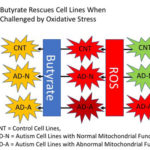Tag Archives:microbiome
The epibiome of endangered corals reflects their genotype
Vaccine design in the OMICs Era
Nanotechnology, is it something useful for future agriculture?
Butyrate enhances mitochondria respiration when challenged with oxidative stress
The gut balance solution to obesity
不是在我的邻居——单纯疱疹病毒control of microbiome locality
The apothecary inside us
Could a newly-discovered bacteria contribute to cancer?
For many years, doctors and scientists have known that certain viruses, such as human papilloma virus (HPV), are capable of causing cancer. Until recently, bacteria were ignored as potential carcinogens. This changed with the discovery that Helicobacter
















